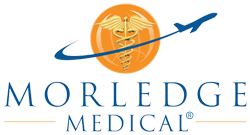When you travel abroad, there are a lot of things you need to remember. From understanding customs and import restrictions to proper insurance and safety advisories, these tips will help ensure that your trip goes well.
Make It a Safe Trip
You’re excited to travel and usually everything will go great but there are a few things you can do to prepare yourself for an emergency:
- Make sure your passport is valid for at least another six months from the completion of your trip
- Fill in your passport details – make sure you’ve filled out the emergency information in your passport and signed it.
- Carry extra passport photos with white background. Some countries require visas on the spot, and need photos. Some on-the-spot visas have fees (ie Border Entry Fee), it is wise to carry $30-50 cash for these possibilities.
- Leave a copy of your passport and itinerary with a contact in the U.S; also leave copies of your credit cards, airline tickets and any traveler’s checks.
- Carry a copy of everything in a secure spot – passports, itinerary, birth certificates, medical prescriptions, and credit cards – in case you have to replace and/or cancel if stolen.
- Enroll in the Smart Traveler Enrollment Program. Run by the U.S. government, STEP is a free program that enables you to receive the latest safety and security information for your destination country, so you can make informed decisions about your travel. Additionally, the information you provide allows the U.S. embassy or consulate to contact you in an emergency.
- Be sure you have the right travel insurance and make sure your medical insurance covers you overseas for any emergency expenses such as medical evacuation.
Your Health Before You Travel
- Before traveling, you should visit the Centers for Disease Control (CDC) website to find out what potential health precautions you need to take regarding the countries to be visited. Morledge Medical® can advise & provide you with the necessary vaccinations.
- If you are traveling with an existing medical condition, you should carry a letter from your physician. Detail what prescription medications you are taking and details of the condition from which you are suffering. You should also check with the local foreign embassy to see if there are any restrictions on your prescription medication.
Custom and Import Restrictions
Different countries have different policies when it comes to what you can bring into, and take out of, the country. It’s crucial that you familiarize yourself with these before you go. Common restrictions include (but aren’t limited to):
- Precious metals, including gold
- Currency
- Jewelry
- Religious artifacts
- Animal skins
- Antiques
- Electronic equipment that hasn’t been declared when you arrive
- Precious and semi-precious stones
- Fresh produce
- Certain medications, even if they are prescribed
Travelers who don’t abide by the custom and import laws of a country may have the item confiscated, and they may also be fined. In some more serious cases, prison sentences can be issued.
When returning to the U.S., there are also restrictions as to what you can bring back with you.
Money and Credit Cards Abroad
It’s a good idea to combine a few different methods of payment as opposed to just taking lots of cash with you.
Credit Cards: These are ideal for larger purchases such as restaurant meals, car rentals, hotel bills and airline tickets. You’re more likely to get a better exchange rate when you pay by credit card than change cash at a change bureau.
Debit Cards: Again, these types of cards can often provide you with good exchange rates. With a lot of ATMs available all over the world, withdrawing cash in the local currency can be easy.
Cash: It’s also worth carrying some cash on you when you’re traveling abroad, just in case the establishment you’re visiting doesn’t accept cards or checks. It’s important that you don’t carry too much cash on you at any time.
Traveler’s Checks and Prepaid Cards: These are a secure alternative to cash, and are perfect as a backup if you can’t find an ATM. If these are lost or stolen, they can normally be replaced within 24 hours. For prepaid cards, confirm with each individual vendor if the card can be used internationally.
Plan sightseeing in advance
Buy tickets now for places you know you want to visit or see. By advance purchasing, you will often skip lines and ensure better deals than on-site. Research happenings going on while you’re away. This will guarantee that you take advantage of each destination’s traditional, cultural, and natural activities, events and resources.
It can be overwhelming trying to plan for vacation, but these travel tips will make you a more confident traveler ready to get out and explore.


